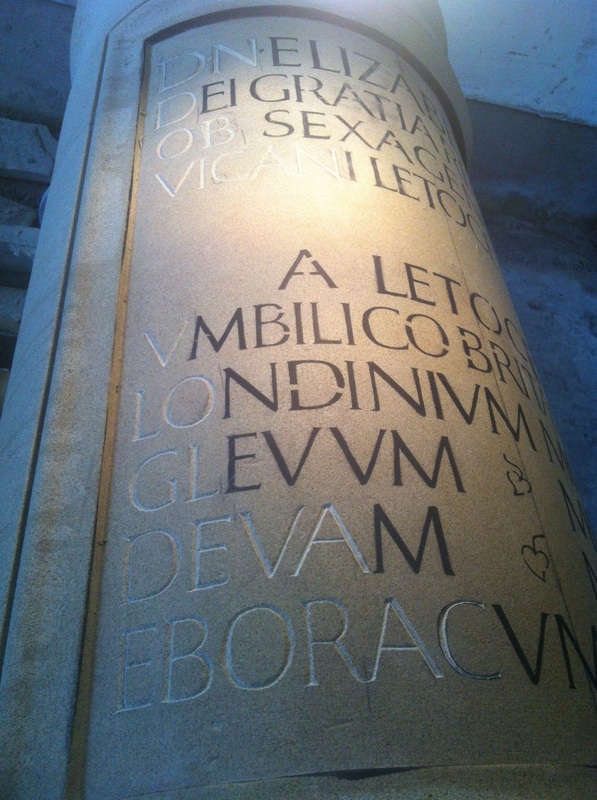The BES is keen to support epigraphic events, especially workshops and summer schools, through grants-in-aid. Those wishing to seek financial support from the BES towards the organisation of such activities are asked to apply by e-mail to the Society's Honorary Secretary by one of four annual deadlines: 1 January, 1 April, 1 July, and 1 October. Please do so well in advance of the date of the activity for which you seek support, commensurate with the type of activity and the level of support you are asking for, i.e. typically three to six months before the workshop, summer school, conference or event date. Please note that we do only in exceptional circumstances offer support in excess of £250 for a single event. The Society's Steering Committee will endeavour to review your application within two weeks after the deadline and the Secretary will then inform you of the outcome of your application.
Your application must include:
(1) a description of the activity for which support is sought:
a) public lectures/conference panels/etc.:
- please provide full information on the lecture event/conference & panel you are planning, the names of all speakers and contributors (and institutional affiliations if appropriate), the individual paper titles, whether or not the panel has already been accepted by the conference organisers, etc.;
b) workshops/summer schools/etc.:
- please provide a (provisional) programme, list of speakers/teachers, information on the venue, etc.
(2) a detailed description of the level of financial support sought:
a) public lectures/conference panels/etc.:
- if you seek support for travel expenses, accommodation, etc. give a detailed estimate of the total expected expenses and how much you are asking the BES to contribute;
b) workshops/summer schools/etc.:
- if you seek support for the running of an epigraphic workshop, summer school or similar activity up to £250, please indicate for which particular expense you seek the support (e.g. speakers’ expenses);
- if you seek support for the running of an epigraphic workshop, summer school or similar activity over £250, please provide a basic budget plan detailing the expected income and expenditure, indicating clearly how you expect the event to be funded in its totality, and stating which particular aspect of it you wish the BES to support.
(3) an indication of the support sought from other organisations, institutions and funding bodies (all activities)
Please direct any participants in your activities who cannot be supported via other means to our bursaries page.
Please note that whenever we award a grant, the BES asks for its support to be noted (e.g. by stating on your workshop programme that the workshop is supported by the BES) and that we require a short report (c. 500 words) on the activity we have supported after the event is finished. Moreover, we ask that you document with receipts within one month after the activity how the financial support received from the BES has been used.
If the kind of activity you have in mind does not fit any of the above criteria, please contact the Secretary to inquire about the possibility of support and how to apply.
Examples of Grants Awarded


The society regularly supports the Practical Epigraphy Workshop
Practical Epigraphy Workshop, Chesters & Corbridge, Northumberland, 2023
The Society supported a Practical Epigraphy Workshop, held in Northumberland in March 2023, with a grant of £500. Read the Grant Report!
Practical Epigraphy Workshop, Oxford 2016
org: Dr P. Haarer and Dr A. Graham
The Society supported a Practical Epigraphy Workshop, held in Oxford in June 2016, with a grant of £250. Read the Grant Report!
'Wall Inscription'!
Members can admire here a milestone in the making - which has since been erected in the village of Wall in England under the auspices of The Friends of Wall.
Brief description of project:
The Wall Jubilee ‘Roman’ Milestone is created in the Roman tradition, through the initiative of the Friends of Wall, to mark the Diamond Jubilee of HM The Queen in 2012. It promises to be a truly unique stone representing a never-to-be repeated coalescence of events and interests at the very best location. The drawing for the lettering was made by Richard Grasby.
The chosen site is as close to the centre of the country as possible to be as representative as possible of the whole nation. It has excellent 'heritage' interest as well as being distinctive and accessible. Wall (Roman Letocetvm) lies at the junction of Watling Street and Ryknield Street, a comfortable equidistance between the major urban centres of Roman Britain: London (Londinium), Chester (Deva), York (Ebracvm) and Gloucester (Glevvm). The Parish Council at Wall owns, and has offered the use of, a 'heritage location' on a quiet by-passed section of Watling Street in the centre of the village. Furthermore it is a location close to the visitor car-park for the Roman site, a site owned by the National Trust and managed by volunteers from the community in co-operation with English Heritage as its Guardian.
The project was supported by the British Epigraphy Society with a small grant.
November 2012.
Epigraphy
Promoting research and workshops in epigraphy.
Community
© 2025. All rights reserved.